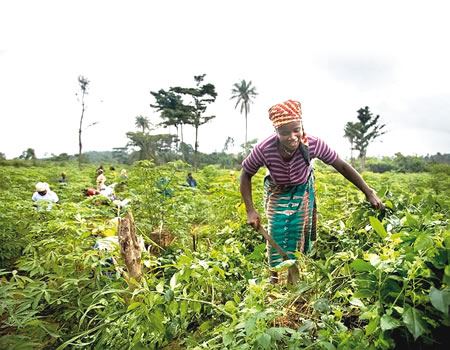
That was part of submissions at the stakeholders’ meeting on the Building Community Response to Climate Change organised by the Human and Environmental Development Agenda Resource Centre, held in Ogbomoso zone, Oyo State.
They lamented that farmers were not adequately enlightened about the devastating effects of climate change.
One of the participants, Paul Ojoawo, who spoke with The PUNCH, said, “Aside from the widely reported herders on our farms, the unpredictable climate change is another factor that we are contending. Our farmlands are not yielding the expected produce it used to be.
“As we all know, the South Western part of the country is an agrarian community but the richness of the land has been washed with erosion occasioned by deforestation.
“The previously notable trees such as Iroko, Obeche, and Mahogany have been caught down without replacement thereby exposing the crops to environmental hazards.”
Another participant, Ajibola Benjamin, in her own submission said, “Our annual losses arising from climate change could not be quantified in terms of naira value. The planting and harvesting periods in the past ten years are unpredictable. This has resulted in a decline in productivity.”
Earlier in his address, the Executive Secretary, HEDA, Sulaimon Arigbabu, urged the farmers to set up accessible and user-friendly reporting channels within their communities.
Arigbabu said, “These include telephone, WhatsApp groups, community meetings or designated reporting centers, educate the community members about the types of climate-related incidences. You should clearly communicate the process for reporting climate-related incidents. Make sure everyone understands what information is needed and how it should be conveyed.
“Involve community leaders, health workers, and volunteers in the reporting process. They can act as intermediaries between community members and local authority.”





